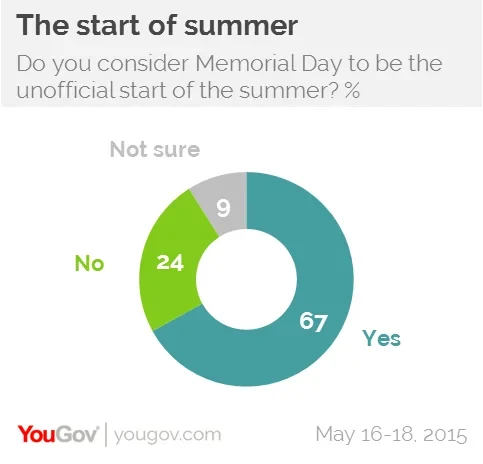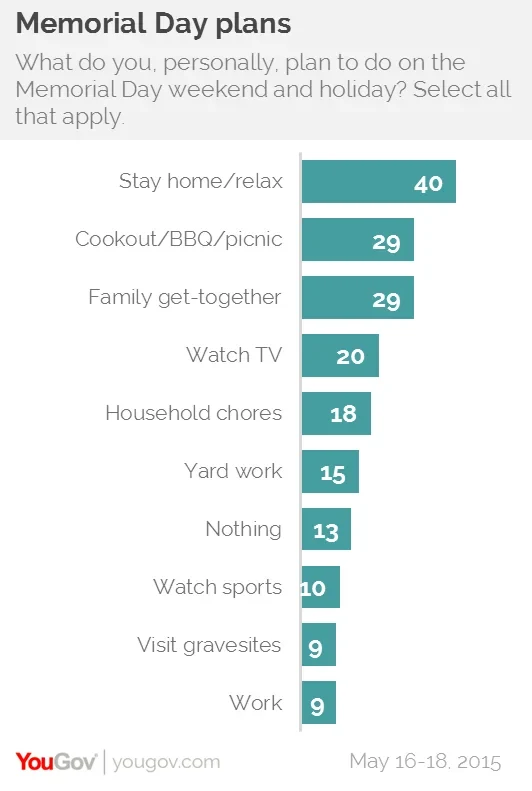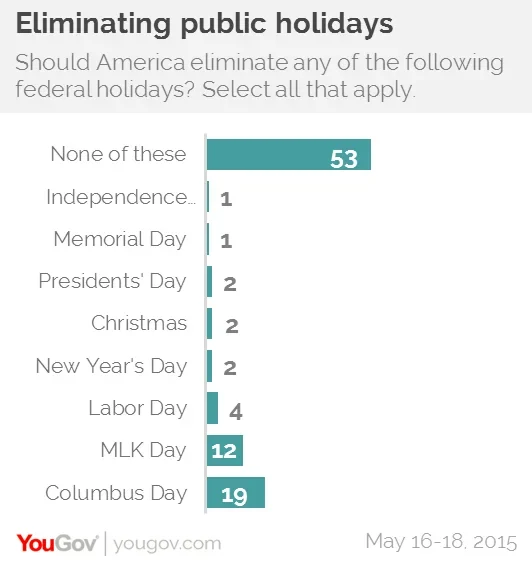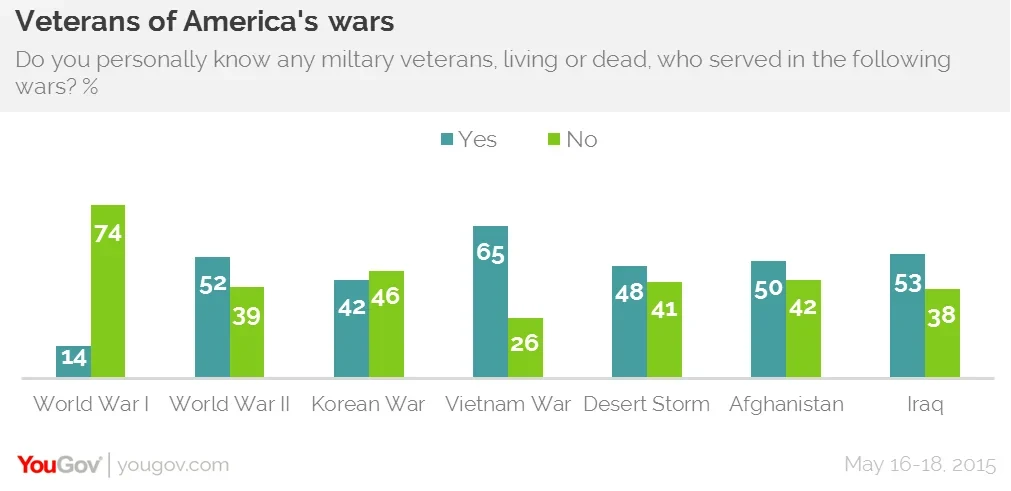Memorial Day is still widely seen as the start of summer, and more often than not is just another holiday not a day of remembrance

Two out of every three Americans regard Memorial Day as the unofficial start of summer and their plans for the three-day weekend accordingly involve mostly relaxation and summertime activities. Relatively few in the latest Economist/YouGov Poll will use the holiday for reflection – either by attending church services or visiting gravesites.
Younger adults – those under 30 – are the least likely to regard Memorial Day as the start of the summer, though 52% of them say it is. Three in four of those 45 and older start their summer on Memorial Day.
For many, Memorial Day is just another three-day holiday weekend. Four out of ten are staying home, with 13% saying they will do nothing. Just over a quarter will see family, and a similar percentage will attend a cookout, picnic or barbeque.

For many, it will be a normal weekend, watching television or doing chores. One in ten say they will work. Less than one in ten will visit gravesites, or go to religious services, or attend a local celebration or parade.
Older adults are the most likely to stay at home Memorial Day; those in the Midwest most likely to celebrate with family and have barbeques or picnics. Republicans and Democrat will do pretty much the same things, though Republicans are three times as likely as Democrats to attend religious services over the weekend.
Almost no one would willingly give up the Memorial Day holiday. In fact, less than half would eliminate any major holiday at all. 12% would be willing to give up Dr. Martin Luther King’s holiday, but more, 19%, would lose Columbus Day, which continues as a federal holiday although not observed by some states and many businesses.

Republicans are more willing to lose the King holiday than the Columbus holiday; Democrats and independents would prefer to lose Columbus Day.
And nearly half would add Easter to the list of federal holidays.
Foreign wars are not at the top of the public’s mind these days (for example, in this poll just 22% describe the war in Afghanistan as a very important issue for them), but war has touched most Americans. For example, 84% personally know someone who served in the military, and most know someone who has served in wartime, with the Vietnam War having the greatest reach.

A third know someone who died who lost their life serving, including half of those 65 years of age or older. Senior citizens are most likely to know people who have served: nearly all of them know someone who fought in Vietnam, and more than three in four know someone who served in World War II.
Economist/YouGov poll archives can be found here.








